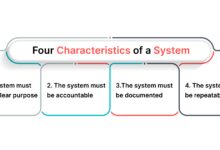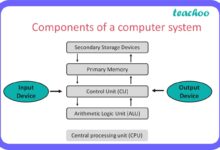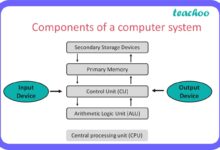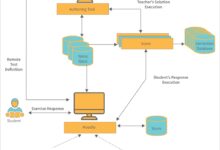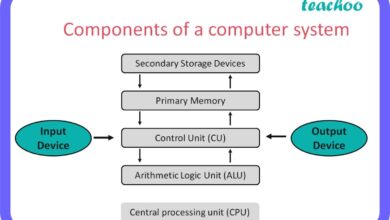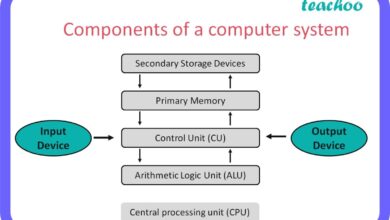AI-Powered CRM Software: 7 Revolutionary Benefits You Can’t Ignore
Imagine a CRM that doesn’t just store customer data but actually thinks, predicts, and acts like a seasoned sales expert. That’s the power of AI-Powered CRM Software—transforming how businesses connect, convert, and retain customers with unmatched precision and intelligence.
What Is AI-Powered CRM Software?

AI-Powered CRM Software integrates artificial intelligence into traditional customer relationship management systems to automate processes, predict customer behavior, and deliver actionable insights in real time. Unlike legacy CRM platforms that rely on manual data entry and static reporting, AI-driven systems learn from interactions, adapt to patterns, and continuously improve performance.
Core Components of AI in CRM
The integration of AI into CRM systems isn’t just a single feature—it’s a suite of intelligent technologies working together to enhance every customer-facing function. These components include natural language processing (NLP), machine learning (ML), predictive analytics, and robotic process automation (RPA).
Natural Language Processing (NLP): Enables CRM systems to understand and respond to human language in emails, chatbots, and voice interactions.For example, NLP allows a CRM to extract sentiment from customer support tickets and prioritize urgent issues.Machine Learning (ML): Powers recommendation engines and predictive lead scoring by analyzing historical data to forecast future outcomes.Over time, ML models become more accurate as they ingest more data..
Predictive Analytics: Uses statistical models to anticipate customer actions, such as churn risk or likelihood to purchase, enabling proactive engagement strategies.How AI Enhances Traditional CRM Functions
Traditional CRM platforms excel at organizing customer data but often fall short in delivering real-time intelligence.AI bridges this gap by transforming passive databases into active decision-making tools.For instance, instead of just logging a sales call, AI-Powered CRM Software can analyze the conversation, suggest follow-up actions, and predict deal closure probability..
“AI doesn’t replace human intuition in sales—it amplifies it by removing guesswork and highlighting what truly matters.” — Salesforce Research, 2023
Tasks like data entry, lead qualification, and customer segmentation, which once consumed hours of manual labor, are now automated with high accuracy. This shift allows sales, marketing, and service teams to focus on strategy and relationship-building rather than administrative overhead.
7 Key Benefits of AI-Powered CRM Software
The adoption of AI in CRM is not just a trend—it’s a strategic imperative for businesses aiming to stay competitive. Below are seven transformative benefits that AI-Powered CRM Software delivers across departments.
1. Hyper-Personalized Customer Experiences
AI enables CRM systems to deliver personalized content, product recommendations, and communication timing based on individual customer behavior and preferences. By analyzing past purchases, browsing history, and engagement patterns, AI can tailor interactions at scale.
- Dynamic email content that changes based on user behavior.
- Product suggestions in real time during live chat or website visits.
- Personalized pricing or discount offers based on purchase likelihood.
For example, Salesforce Einstein uses AI to recommend the next best action for sales reps, ensuring each customer interaction is relevant and timely.
2. Predictive Lead Scoring and Sales Forecasting
One of the most impactful applications of AI in CRM is predictive lead scoring. Instead of relying on static rules (e.g., job title or company size), AI models assess hundreds of behavioral and demographic signals to determine which leads are most likely to convert.
- Leads are scored in real time based on engagement, website activity, and email opens.
- Sales teams receive prioritized pipelines, reducing time spent on low-probability prospects.
- Forecasting accuracy improves by up to 40%, according to Gartner.
This predictive capability allows sales managers to allocate resources more effectively and set realistic revenue targets.
3. Intelligent Automation of Routine Tasks
AI-Powered CRM Software automates repetitive tasks such as data entry, meeting scheduling, and follow-up emails. This not only reduces human error but also frees up valuable time for customer-facing activities.
- Automatic logging of calls, emails, and meetings into the CRM.
- AI assistants like Microsoft Dynamics 365 AI suggest optimal times for follow-ups based on customer responsiveness.
- Auto-generated summaries of customer interactions for quick review.
According to a McKinsey report, automation in CRM can reduce administrative workload by up to 30%, significantly boosting team productivity.
4. Enhanced Customer Service with AI Chatbots
AI-driven chatbots integrated into CRM platforms provide 24/7 customer support, resolving common queries instantly and escalating complex issues to human agents with full context.
- Chatbots learn from past interactions to improve response accuracy.
- They reduce average response time from hours to seconds.
- Seamless handoff to live agents with complete conversation history.
Companies like Zendesk and Freshdesk have reported up to 50% reduction in support tickets after deploying AI chatbots within their CRM ecosystems.
5. Real-Time Sentiment Analysis
AI-Powered CRM Software can analyze customer sentiment across emails, social media, and call transcripts to detect frustration, satisfaction, or intent to churn.
- Flags negative sentiment for immediate managerial review.
- Triggers automated retention offers when dissatisfaction is detected.
- Helps refine communication strategies based on emotional tone.
This real-time emotional intelligence allows businesses to intervene before minor issues escalate into lost customers.
6. Smarter Marketing Campaigns
AI enhances marketing automation by optimizing campaign timing, channel selection, and content personalization. It identifies the best-performing combinations through continuous A/B testing and feedback loops.
- Predicts the optimal time to send emails for maximum open rates.
- Segments audiences dynamically based on real-time behavior.
- Generates subject lines and ad copy using natural language generation (NLG).
HubSpot’s AI tools, for instance, analyze thousands of campaigns to recommend content adjustments that boost conversion rates by up to 25%.
7. Proactive Churn Prevention
AI models can identify early warning signs of customer churn by analyzing usage patterns, support ticket frequency, and engagement drops.
- Generates risk scores for each customer account.
- Suggests retention strategies, such as personalized outreach or special offers.
- Integrates with customer success workflows to trigger preventive actions.
A study by PwC found that companies using AI for churn prediction saw a 15–20% improvement in customer retention rates within the first year of implementation.
Top AI-Powered CRM Software Platforms in 2024
As demand for intelligent CRM solutions grows, several platforms have emerged as leaders by combining robust AI capabilities with user-friendly interfaces and deep integrations.
Salesforce Einstein AI
Salesforce remains the market leader in AI-Powered CRM Software, thanks to its comprehensive Einstein AI suite. It offers predictive lead scoring, opportunity insights, email insights, and automated data capture.
- Integrates seamlessly with Salesforce Sales Cloud, Service Cloud, and Marketing Cloud.
- Uses deep learning to recommend next-best actions for sales reps.
- Offers AI-powered voice analytics for call centers.
Learn more at Salesforce Einstein.
AI-Powered CRM Software – AI-Powered CRM Software menjadi aspek penting yang dibahas di sini.
Microsoft Dynamics 365 AI
Microsoft’s AI-Powered CRM Software is ideal for enterprises already using the Microsoft 365 ecosystem. It provides AI-driven insights for sales, customer service, and marketing teams.
- AI for Sales: Suggests follow-ups, predicts deal risks, and surfaces key relationship insights.
- AI for Customer Service: Automates case classification and recommends knowledge articles.
- Tight integration with Outlook, Teams, and Power BI for unified workflows.
Explore more at Microsoft Dynamics 365 AI.
HubSpot AI Tools
HubSpot has democratized AI for small and mid-sized businesses with its intuitive AI features embedded across its CRM platform.
- Content assistant for generating emails, blog posts, and social media captions.
- Meeting insights that summarize key discussion points and action items.
- Predictive lead scoring based on engagement and lifecycle stage.
HubSpot’s AI is particularly praised for its ease of use and no-code implementation. Visit HubSpot AI for details.
Zoho CRM with Zia AI
Zoho CRM’s AI assistant, Zia, offers a cost-effective solution for businesses seeking AI capabilities without enterprise pricing.
- Voice-based assistant for quick data queries and task automation.
- Predictive sales forecasting and sentiment analysis.
- AI-powered workflow suggestions to improve team efficiency.
Zia supports multilingual interactions, making it ideal for global teams. More info at Zoho Zia.
How AI-Powered CRM Software Transforms Sales Teams
Sales is perhaps the department that benefits most from AI integration. From lead prioritization to deal closure, AI-Powered CRM Software acts as a virtual sales coach, guiding reps toward success.
Automated Lead Prioritization
AI analyzes lead behavior—such as website visits, content downloads, and email engagement—to assign dynamic scores. High-scoring leads are automatically routed to the appropriate sales rep with suggested talking points.
- Reduces time-to-contact for hot leads from hours to minutes.
- Increases conversion rates by focusing efforts on qualified prospects.
- Eliminates bias in lead assignment through data-driven decisions.
Deal Risk Assessment
AI models assess the health of ongoing deals by analyzing communication frequency, stakeholder engagement, and historical win/loss data.
- Flags deals at risk of stalling or losing.
- Recommends actions like sending a demo or involving a manager.
- Improves forecast accuracy by identifying hidden red flags.
This proactive insight helps sales managers intervene early and increase win rates.
Smart Call and Email Coaching
AI transcribes sales calls, analyzes tone and keywords, and provides feedback on performance. It can also suggest optimal email templates based on recipient behavior.
- Identifies top-performing phrases used by successful reps.
- Coaches new hires by comparing their calls to best practices.
- Auto-generates follow-up emails after meetings.
Companies using AI coaching tools report up to 20% improvement in sales rep performance within six months.
AI in Customer Service: Smarter Support, Faster Resolutions
Customer service is another area where AI-Powered CRM Software delivers measurable impact. By combining AI with service workflows, companies can resolve issues faster and improve satisfaction scores.
Intelligent Ticket Routing
AI analyzes incoming support requests and routes them to the most qualified agent based on issue type, language, and historical resolution success.
- Reduces average handling time by 30%.
- Improves first-contact resolution rates.
- Supports multilingual routing for global businesses.
AI Knowledge Base Suggestions
When an agent opens a support ticket, AI instantly surfaces relevant knowledge base articles, past solutions, and similar cases.
- Reduces dependency on tribal knowledge.
- Speeds up resolution time for complex issues.
- Ensures consistency in customer responses.
Proactive Issue Detection
AI monitors customer usage patterns and system logs to detect potential problems before they escalate.
- Sends automated alerts to customers about upcoming service disruptions.
- Triggers preventive maintenance workflows.
- Reduces reactive support volume by up to 40%.
This shift from reactive to proactive service enhances customer trust and loyalty.
Challenges and Limitations of AI-Powered CRM Software
Despite its many advantages, AI-Powered CRM Software is not without challenges. Organizations must navigate data privacy, implementation complexity, and user adoption to realize its full potential.
Data Quality and Integration Issues
AI models are only as good as the data they’re trained on. Incomplete, outdated, or siloed data can lead to inaccurate predictions and poor recommendations.
- Requires robust data governance and cleansing processes.
- Integration with legacy systems can be technically challenging.
- Cloud-based CRMs often offer better AI readiness than on-premise solutions.
Privacy and Ethical Concerns
The use of AI to analyze customer behavior raises concerns about data privacy and surveillance.
- Must comply with regulations like GDPR and CCPA.
- Transparency in how AI makes decisions is crucial for trust.
- Customers should have control over their data and opt-out options.
Companies must balance personalization with privacy to avoid backlash.
User Adoption and Training
Even the most advanced AI tools fail if users don’t trust or understand them.
- Sales and service teams may resist AI if it feels intrusive.
- Requires ongoing training and change management.
- Leadership buy-in is essential for successful rollout.
Best practices include starting with pilot programs and gathering user feedback early.
Future Trends in AI-Powered CRM Software
The evolution of AI-Powered CRM Software is accelerating, driven by advances in generative AI, real-time analytics, and voice intelligence.
AI-Powered CRM Software – AI-Powered CRM Software menjadi aspek penting yang dibahas di sini.
Generative AI for Content Creation
Generative AI is revolutionizing how CRM users create content. From drafting emails to generating meeting summaries, AI can now produce human-like text in seconds.
- Reduces time spent on writing by up to 70%.
- Ensures brand-consistent messaging across channels.
- Supports multilingual content generation for global teams.
Platforms like Salesforce and HubSpot are already integrating generative AI into their workflows.
Real-Time Decision Intelligence
Future CRM systems will provide real-time decision support during customer interactions, such as live call coaching or dynamic pricing suggestions.
- AI analyzes conversation tone and content in real time.
- Suggests responses to improve customer sentiment.
- Integrates with ERP and inventory systems for instant offers.
This level of responsiveness will redefine customer experience standards.
Voice and Emotion Recognition
Advanced AI will soon detect not just what customers say, but how they feel—through tone, pitch, and speech patterns.
- Identifies frustration or excitement during calls.
- Triggers empathy-based responses from agents.
- Improves emotional intelligence in automated systems.
This technology will enable truly empathetic AI interactions, bridging the gap between machines and human connection.
How to Choose the Right AI-Powered CRM Software
Selecting the right AI-Powered CRM Software requires careful evaluation of business needs, technical capabilities, and long-term goals.
Assess Your Business Needs
Start by identifying which departments will use the CRM and what problems you want to solve.
- Sales teams may prioritize lead scoring and forecasting.
- Marketing teams may need AI-driven campaign optimization.
- Customer service teams may focus on chatbots and sentiment analysis.
A clear use case ensures you invest in features that deliver real value.
Evaluate AI Capabilities
Not all AI in CRM is created equal. Look for platforms with proven AI models, transparent algorithms, and continuous learning capabilities.
- Ask vendors for case studies or ROI metrics.
- Test AI features in a sandbox environment.
- Check for third-party audits or certifications.
Ensure Data Security and Compliance
AI systems process vast amounts of sensitive customer data. Ensure the CRM provider adheres to industry standards like ISO 27001, SOC 2, and GDPR.
- Review data encryption and access controls.
- Understand where data is stored and processed.
- Verify compliance with regional regulations.
Security should never be an afterthought when adopting AI-Powered CRM Software.
What is AI-Powered CRM Software?
AI-Powered CRM Software combines artificial intelligence with customer relationship management tools to automate tasks, predict customer behavior, and deliver intelligent insights. It enhances sales, marketing, and customer service by making them more proactive, personalized, and efficient.
How does AI improve lead scoring in CRM?
AI improves lead scoring by analyzing hundreds of behavioral and demographic data points in real time, such as email engagement, website activity, and social interactions. Unlike rule-based scoring, AI models learn from historical conversion data to predict which leads are most likely to buy, resulting in more accurate and dynamic scoring.
Can AI in CRM replace human sales reps?
No, AI in CRM is designed to augment, not replace, human sales reps. It handles repetitive tasks, provides data-driven insights, and suggests next steps, allowing reps to focus on building relationships and closing deals. The human touch remains essential for empathy, negotiation, and complex decision-making.
What are the risks of using AI in CRM?
Risks include poor data quality leading to inaccurate predictions, privacy concerns due to extensive data collection, and resistance from employees who may fear job displacement. These can be mitigated through data governance, transparent AI practices, and comprehensive training programs.
Which CRM has the best AI capabilities?
Salesforce Einstein is widely regarded as having the most advanced AI capabilities, followed closely by Microsoft Dynamics 365 AI and HubSpot AI. The best choice depends on your business size, industry, and existing tech stack. For enterprise organizations, Salesforce and Microsoft offer deep integrations, while HubSpot and Zoho are ideal for SMBs.
The rise of AI-Powered CRM Software marks a fundamental shift in how businesses manage customer relationships. No longer limited to data storage and reporting, modern CRM systems now act as intelligent partners that anticipate needs, automate workflows, and deliver hyper-personalized experiences. From predictive analytics to generative AI, the technology is evolving rapidly, offering unprecedented opportunities for growth and efficiency. While challenges around data quality, privacy, and adoption remain, the benefits far outweigh the risks for organizations willing to embrace this transformation. By choosing the right platform and implementing it strategically, businesses can unlock a new era of customer engagement—one where every interaction is smarter, faster, and more meaningful.
AI-Powered CRM Software – AI-Powered CRM Software menjadi aspek penting yang dibahas di sini.
Further Reading:
